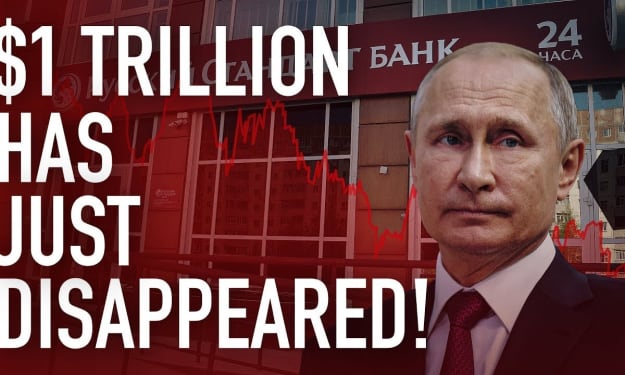"Peter Schiff Warns: What's Coming Is Worse Than a Recession"
Peter Schiff Warns: What's Coming Is Worse Than a Recession

Peter Schiff, a well-known American economist and financial commentator, recently issued a warning about the state of the economy. In a video released just 5 minutes ago, Schiff stated that the situation is actually worse than a recession, implying that there could be more significant economic challenges ahead.
Schiff's warning is worth paying attention to because of his expertise in the field of finance. He is known for his accurate predictions of economic downturns and his criticism of the Federal Reserve's monetary policy.
In his video, Schiff explained that the current economic climate is characterized by inflation, which is driving up prices for goods and services. He argued that this is not just a temporary phenomenon but rather a more sustained trend that could continue for a while. This could lead to a decrease in the purchasing power of individuals and cause significant disruptions in the economy.
Schiff pointed out that the Federal Reserve's response to the inflationary pressures has been to maintain a low interest rate policy. However, this policy can only be sustained for so long, and when the Fed eventually raises interest rates, it could trigger a recession.
Schiff argued that the recession could be particularly severe because of the high levels of debt that many individuals and corporations have accumulated. He argued that the current economic system is built on a foundation of debt, and that this debt could eventually come crashing down. When this happens, the consequences could be severe and long-lasting.
One potential consequence of a recession could be a significant increase in unemployment. With many businesses struggling to stay afloat, they may be forced to lay off workers. This could lead to a significant increase in unemployment and a decrease in consumer spending, which could further exacerbate the economic downturn.
Another potential consequence of a recession could be a significant decrease in the value of assets, such as stocks and real estate. This could lead to significant losses for individuals and institutions that have invested heavily in these assets.
While Schiff's warnings may be alarming, it's important to remember that there are many factors that influence the economy, and no one can predict the future with complete accuracy. However, it's always wise to keep an eye on the state of the economy and to be prepared for any potential challenges that may arise.
One potential way to prepare for a recession is to reduce personal debt and to build up savings. By doing so, individuals can reduce their exposure to the risks associated with a recession and ensure that they have the financial resources they need to weather any potential economic storms.
Another potential way to prepare for a recession is to invest in assets that are less vulnerable to economic downturns. For example, investing in gold or other precious metals could provide a hedge against inflation and economic uncertainty.
Ultimately, the key to weathering any potential economic storm is to stay informed and to be prepared. By keeping an eye on the state of the economy and taking steps to reduce personal debt and build up savings, individuals can minimize their exposure to the risks associated with a recession and ensure that they are well-positioned to weather any economic challenges that may arise. In addition to reducing personal debt and building up savings, another potential way to prepare for a recession is to invest in skills that are in demand even during an economic downturn. This could mean pursuing education or training in fields that are less vulnerable to economic volatility, such as healthcare or information technology.
It's also worth considering how the global economy may be affected by a potential recession. If the US economy were to experience a significant downturn, it could have ripple effects throughout the world, particularly in countries that are heavily reliant on US trade and investment.
In response to a potential recession, governments may take steps to stimulate the economy, such as increasing government spending or cutting taxes. However, these measures can also have unintended consequences, such as increasing government debt or contributing to inflation.
Another potential response to a recession is for central banks to implement quantitative easing, which involves purchasing assets such as government bonds in order to increase the money supply and stimulate economic growth. However, this can also contribute to inflation and increase the risks of a financial crisis in the future.
Overall, it's important to remain vigilant and to take steps to prepare for any potential economic challenges that may arise. While no one can predict the future with complete accuracy, staying informed and being prepared can help individuals and institutions weather any economic storm that may come their way.






Comments
There are no comments for this story
Be the first to respond and start the conversation.